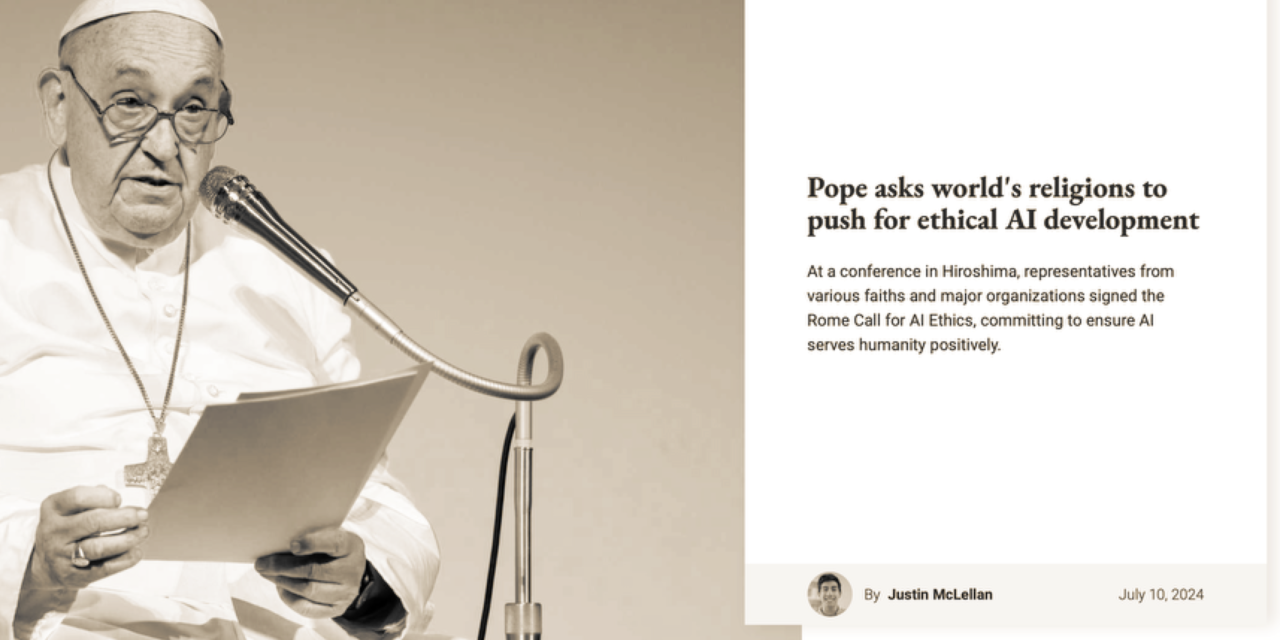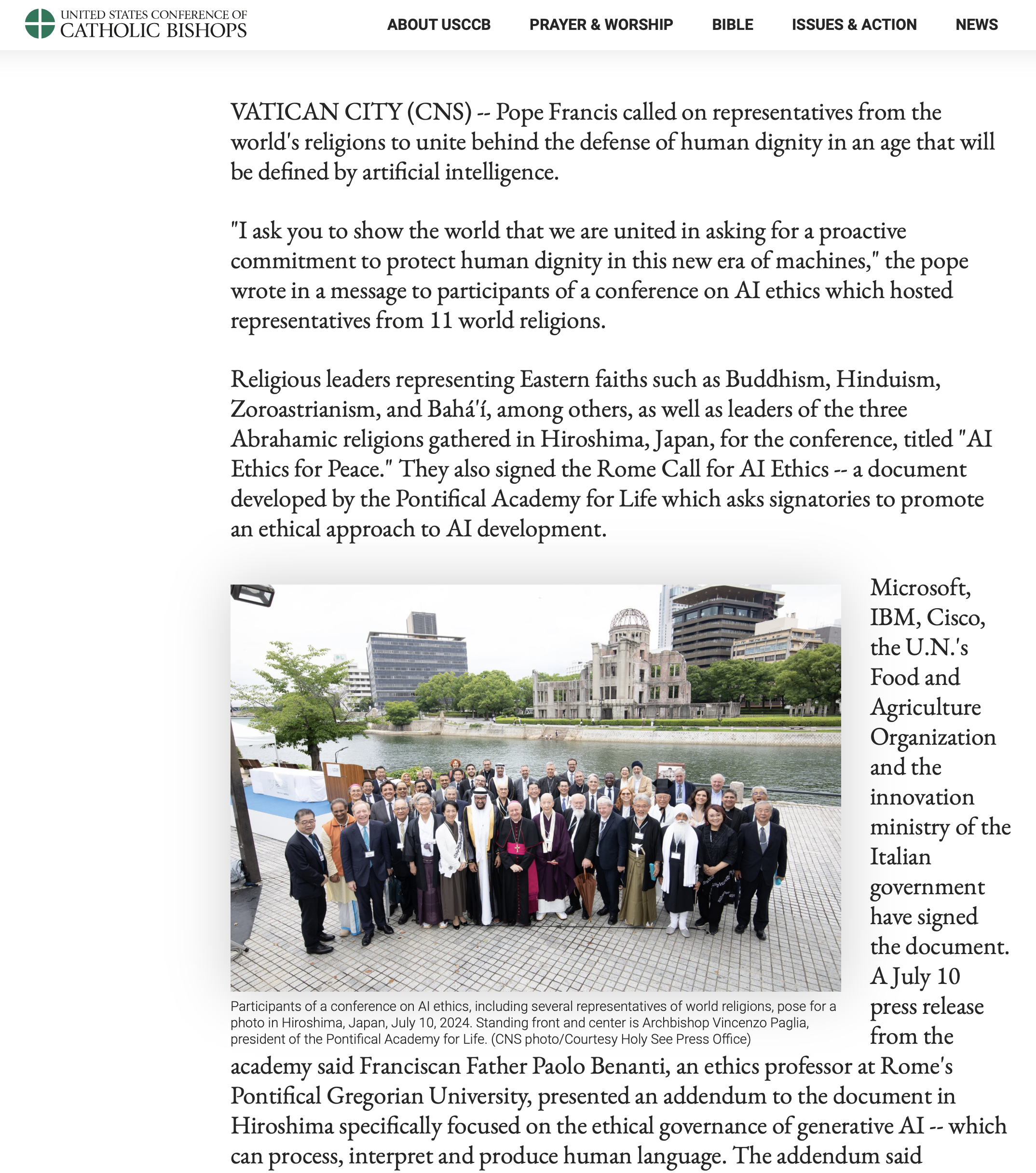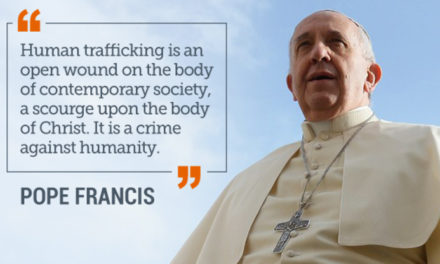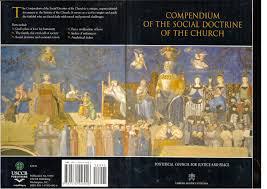“I ask you to show the world that we are united in asking for a proactive commitment to protect human dignity in this new era of machines,” the pope wrote in a message to participants of a conference on AI ethics which hosted representatives from 11 world religions.
Religious leaders representing Eastern faiths such as Buddhism, Hinduism, Zoroastrianism, and Bahá’í, among others, as well as leaders of the three Abrahamic religions gathered in Hiroshima, Japan, for the conference, titled “AI Ethics for Peace.” They also signed the Rome Call for AI Ethics — a document developed by the Pontifical Academy for Life which asks signatories to promote an ethical approach to AI development.
Microsoft, IBM, Cisco, the U.N.‘s Food and Agriculture Organization and the innovation ministry of the Italian government have signed the document. A July 10 press release from the academy said Franciscan Father Paolo Benanti, an ethics professor at Rome’s Pontifical Gregorian University, presented an addendum to the document in Hiroshima specifically focused on the ethical governance of generative AI — which can process, interpret and produce human language. The addendum said generative AI requires sustained commitment to ensuring its use for humanity’s good.
In his message to the conference published by the Vatican July 10, Pope Francis noted the “great symbolic importance” of the religious leaders’ meeting in Hiroshima and noted the increasingly central role which artificially intelligent technology plays in society.
“As we look at the complexity of the issues before us, recognizing the contribution of the cultural riches of peoples and religions in the regulation of artificial intelligence is key to the success of your commitment to the wise management of technological innovation,” he wrote.
Echoing his address on artificial intelligence to the G7 summit in June, the pope asked the participants to jointly push for the ban of lethal autonomous weapons, which “starts from an effective and concrete commitment to introduce ever greater and proper human control.”
“No machine should ever choose to take the life of a human being,” he wrote.
Opening the conference July 9, Archbishop Vincenzo Paglia, academy president, said that artificial intelligence “must be guided so that its potential serves the good from the moment of its design.”
“At Hiroshima, a place of the highest symbolic value, we strongly invoke peace, and we ask that technology be a driver of peace and reconciliation among peoples,” he said. “We stand here, together, to say loudly that standing together and acting together is the only possible solution.”


























